A couple weeks ago I was invited to attend Vogue Codes, an event for women in technology. I was lucky enough that my boss let me have the day off with almost no warning (thanks boss, and thanks Atlassian!). I was again lucky that my coworker told me she was going to wear a dress for the event, so I wore one too - this is the first tech conference where I would have felt weird wearing jeans and sneakers!

Overall impressions
- Vogue knows how to do glamor! I know this shouldn’t be surprising, but we had Wedgewood tea cups, beautiful table settings, and an embossed notebook at every seat. It was, by far, the girliest tech event I’ve ever been to. (And honestly, I loved it - I ran Classy Coding for Women Who Code which was a massively cheaper event, but in the same spirit.)
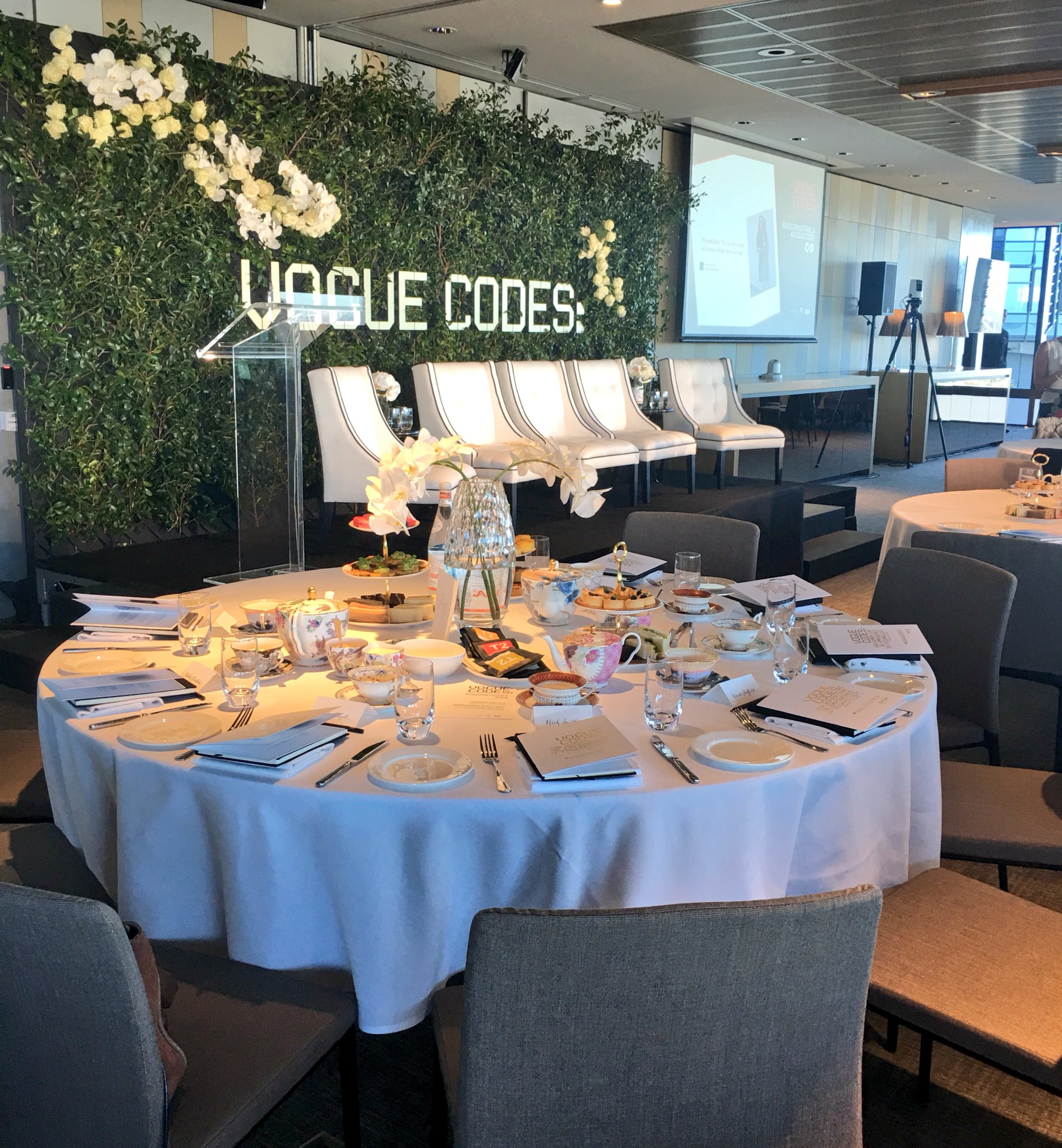
- So many women! There were ~15 tables of ~8 people each, so ~120 people at the event - almost all of them were women. I’ve been to similarly sized Girl Geek events, but never in so large a place. We took up the whole room, and there was a line for the bathroom. Very cool.
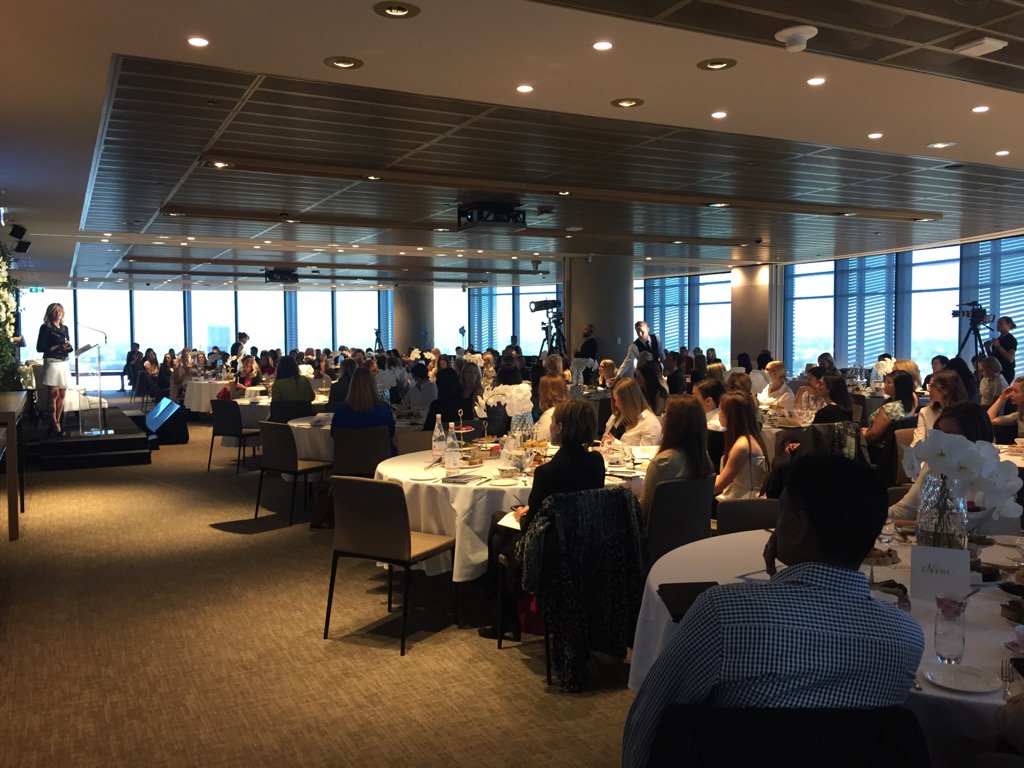
- So few programmers :( During the event someone asked us to raise our hand if we were in: media, PR, HR, etc. When they got to “programmers” I gleefully shot my hand up. My heart sank as I looked around the room at the other… 10? women with their hands up. Similarly, I did a rough check of how many of the speakers coded. Of the ~17 speakers guess how many coded on a day to day basis? One.
Notes from the talks
The future is being written in lines of code by Kathryn Parsons
- Don’t ask “can you be an engineer?” ask “are you creative? Persistent? Logical?”
- It’s not that women aren’t capable of being developers, it’s that they’re opting out.
- They’re dropping out of the roles they’re in
- Girls aren’t choosing CS at schools
- Girls are far less confident that they’ll be able to engineer
- Talked about the importance of networking, and how women are often not included in traditional networks
Art vs Science: why can’t we all just get along? with Nikki Durkin, Naomi Shepherd, Melanie Perkins
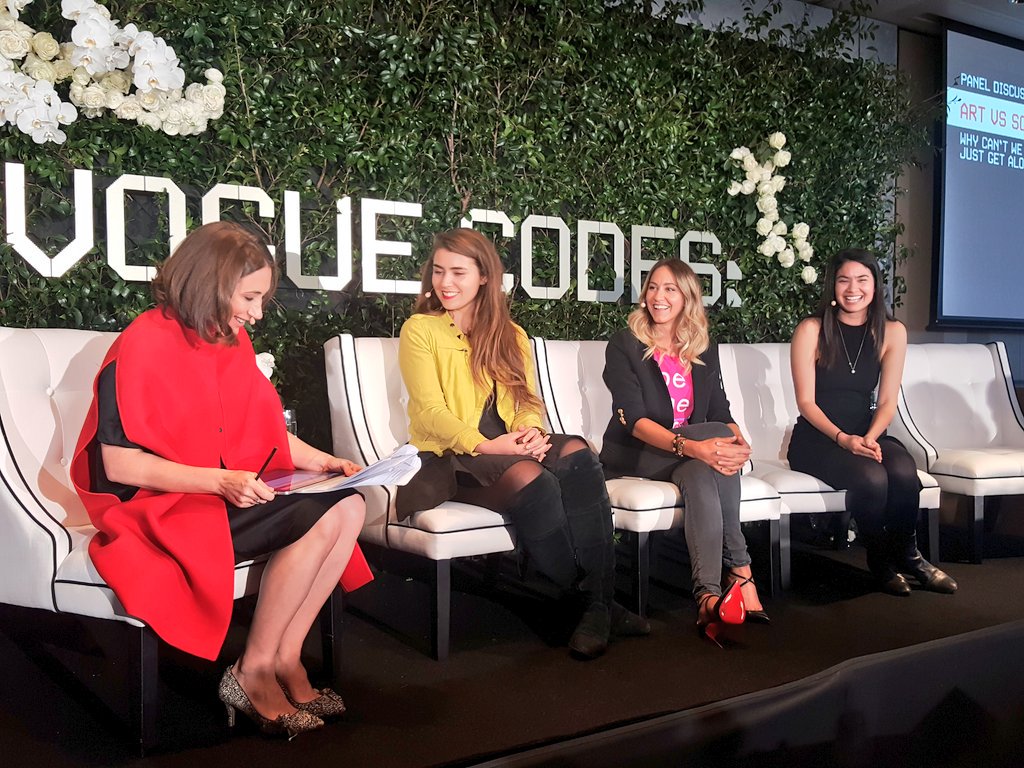
- Discussion about how code is involved in creative endeavors - “code is a tool, just like a paint brush”
- Don’t ask “do you want to code?” ask “do you want to help people?” Clearly a common thread that “coding” is a turnoff for girls and women…
- Discussion around education
- Learning to code through projects
- Continuing education throughout your life - “never stop learning”
- Questioning if a uni education is still valuable, and how it needs to change to stay up to date
ABCs to CSS: solving the technology question with education with Ethy Levy, Dave Curran, Annie Parker, Verity Firth
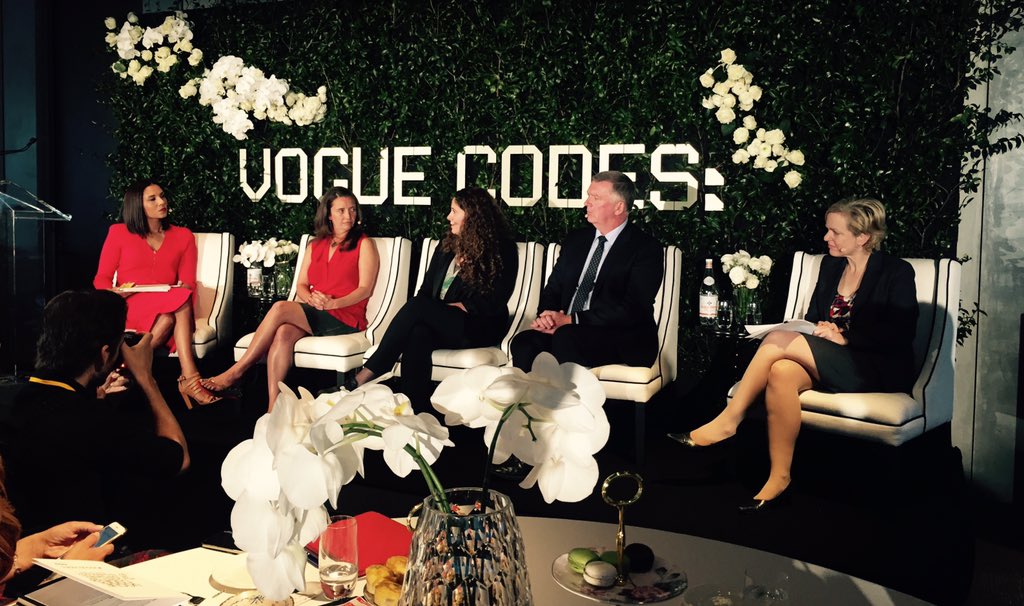
- Learning to code impacts other subjects as well. Teachers noticed better collaboration skills and students taking on problems on their own.
- Things like Code Club (and CS First) are great for some kids, but it’s the Government's job to make those things available to everyone - it’s slow work...
- Don’t wait for tech to be 50% women before joining in. Be the woman who takes it from 20% to 21%
The fashion technologist: solving the style question with technology with Amber Venz Box
- Predicted tech trend: more “walled gardens” like instagram where the platform has the power - companies intentionally offering little functionality that’s very focused.
- Talked about work/life balance and having dedicated calendar time for being with her family
- Know your value and take it
The career disruption: reinvent your own career with Canna Campbell, Georgie Abay, Alyce Tran, Alice Brennan
- Two of the speakers started new businesses after leaving their previous roles and having children.
- “What a waste not to be passionate about what you do for a living.”
- Talked about having very unstructured days as founders and CEOs, but they always have some time dedicated to ideas and quiet working. This means having clear priorities is even more important for them.
Technology: why not women? With Aubrey Blanche, Anastasia Cammaroto, Alisa Bowen, Mikaela Jade
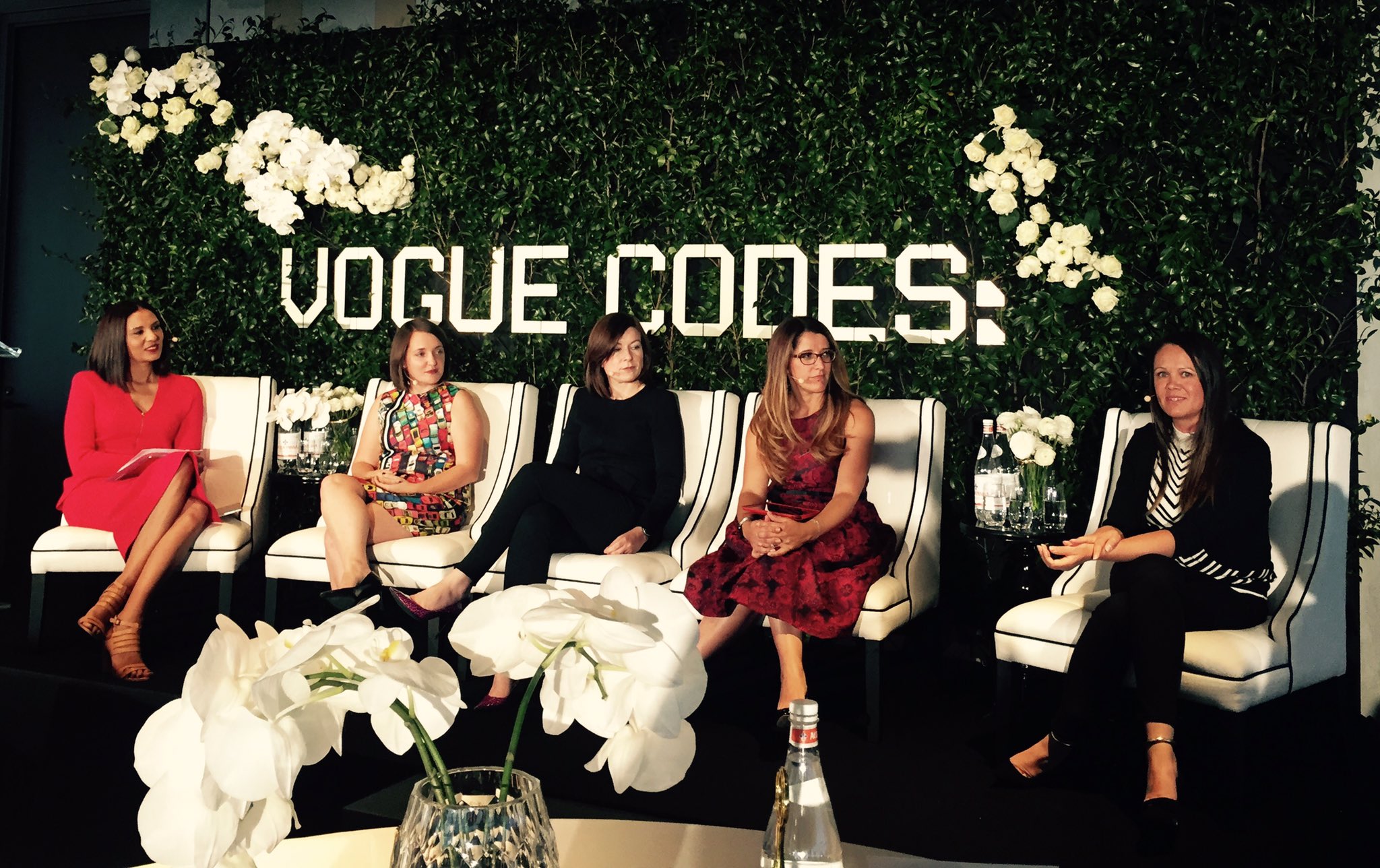
- More discussion about tech’s “marketing problem” - mentioned advertising free beer more often than good parental leave policies
- Brief vocab lesson:
- Sponsorship - using your network and clout to help someone once off
- Mentorship - 1:1 long term help, building someone up and helping them grow
- Reverse mentorship - junior employees helping senior employees (typically for technical tasks the younger employees have more experience with)
- Small actions can make an overall change. Some suggestions:
- Take an hour a week to do sponsorship or mentorship
- Every few months (starting now) look at who you follow on Twitter. Are they all one gender, race, political view, sexual orientation, etc.? Rebalance to better represent society’s distribution.
comments powered by
Disqus